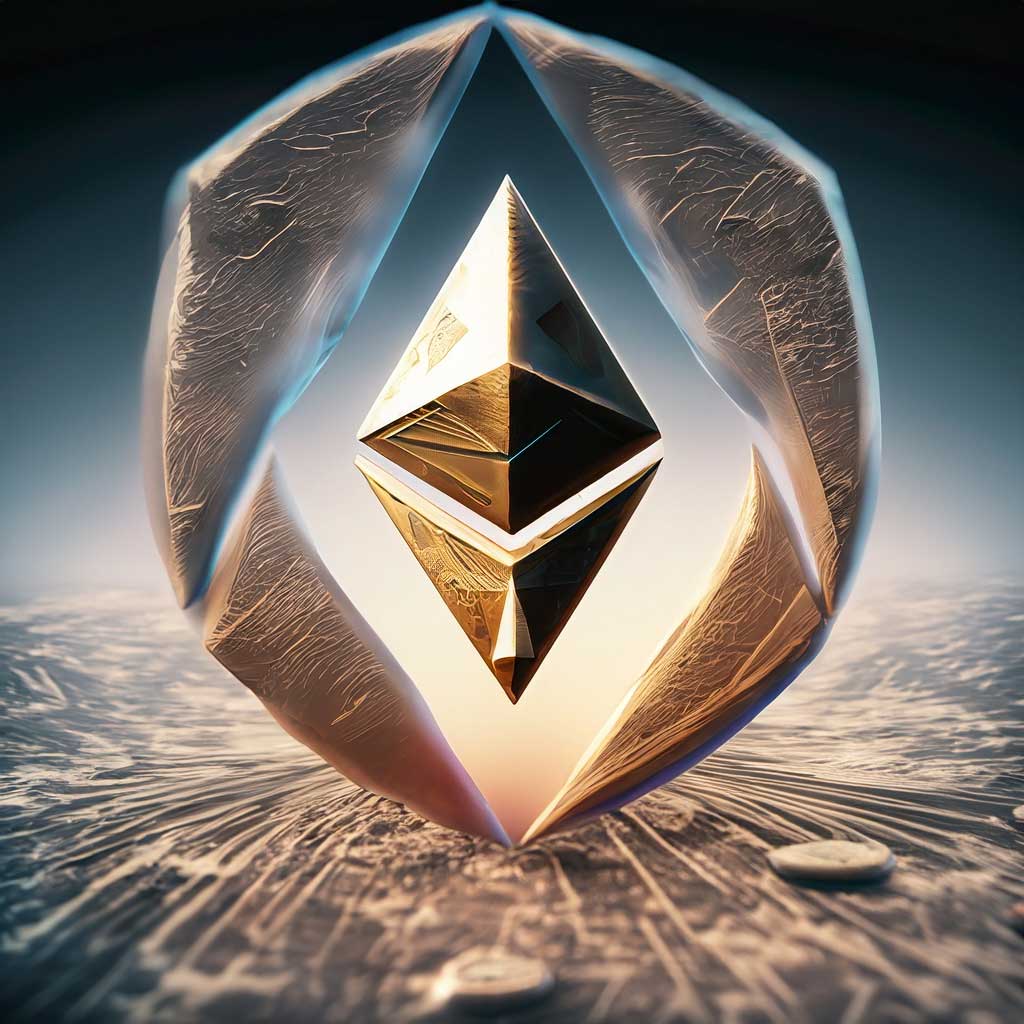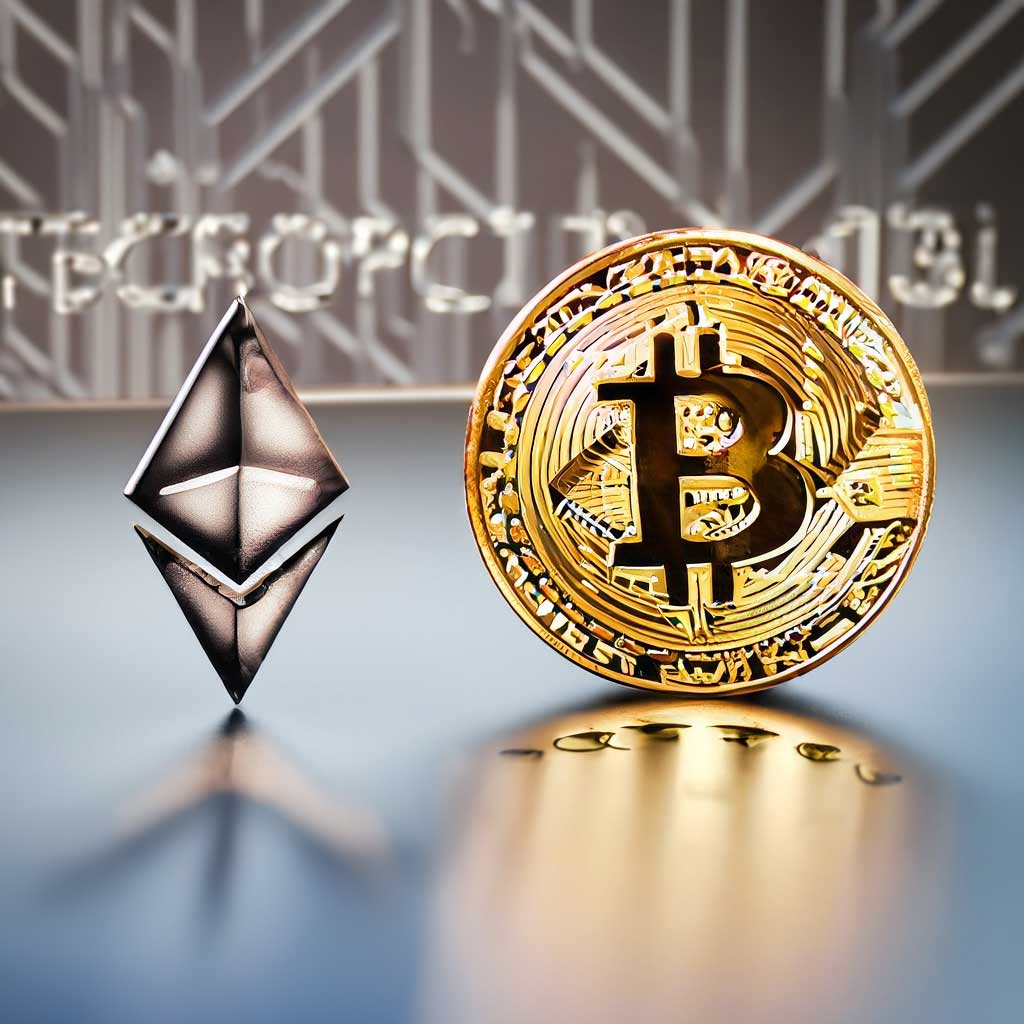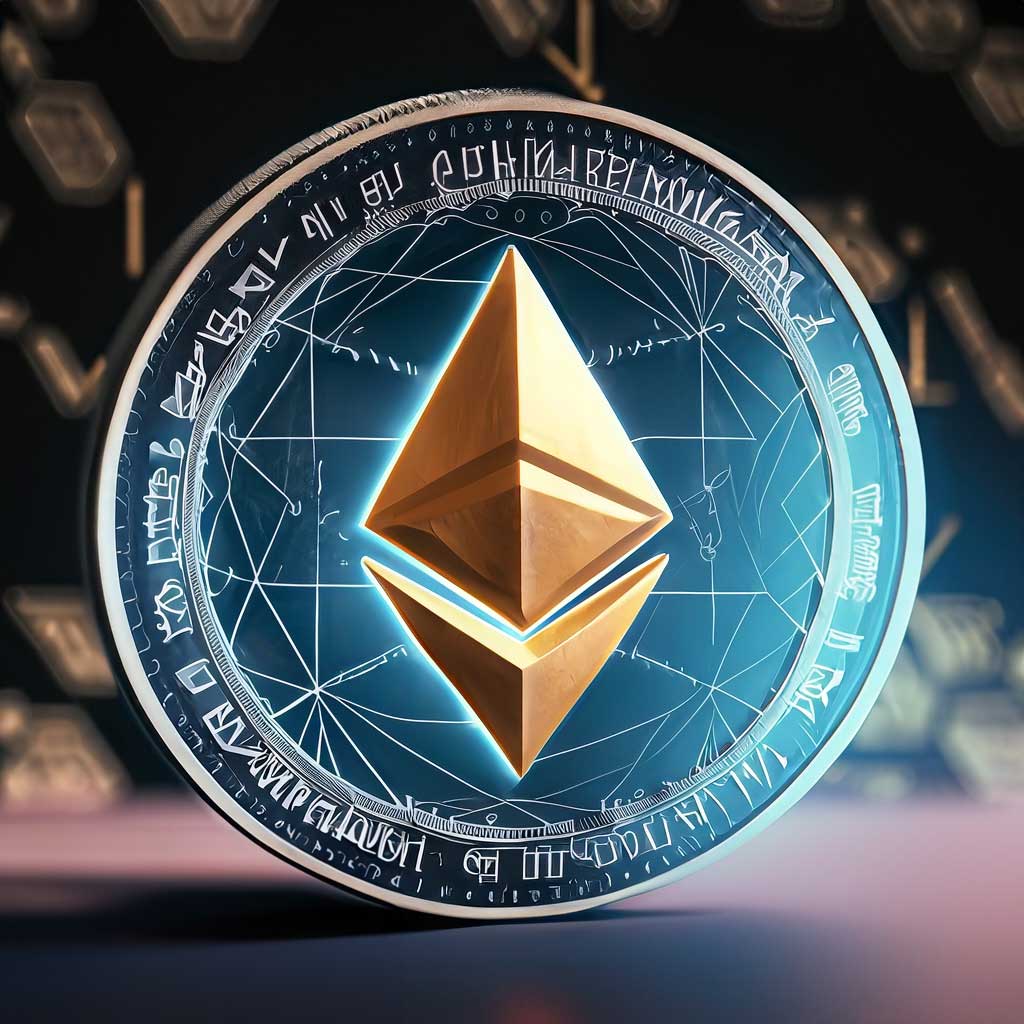Everything you need to know about the second-largest cryptocurrency, Ethereum; from its basics, key differences from Bitcoin to the impact on various industries and its future prospects.
Unravelling Ethereum: A Detailed Overview
Tech titans like Samsung, Amazon, and Microsoft have adopted Ethereum, leading to a surge in its popularity. However, the question remains – what makes Ethereum especially appealing to investors, entrepreneurs, artists, and corporations?
As the runner-up to Bitcoin in the ranking of cryptocurrencies, Ethereum is recognized for being the cornerstone of decentralized applications (dApps). This commentary highlights the ins and outs of Ethereum, its distinction from Bitcoin, the concept of smart contracts and, its practical usage plus how you can leverage this technology.
Take Note: In case you’re a newcomer to the realm of cryptocurrencies (a hearty welcome to you!), it might be beneficial to take a look at our article on Bitcoin first.

Understanding Ethereum
Ethereum is a sovereign, decentralized blockchain technology that falls outside the purview of any government or central bank. The technology underwrites decentralized applications (dApps) and facilitates the trading and custody of cryptocurrencies besides sprouting new ones.
Ethereum is fuelled by its native cryptocurrency, Ether (ETH). You could liken ETH to gasoline and Ethereum to an engine for a better understanding.

Ethereum at Work
Picture the Ethereum network as a robust, decentralized computer capable of carrying out nearly any task with ample time, processing power and instructions. Given its versatility, a myriad of applications can be established on its blockchain, essentially making Ethereum the backbone for many blockchain-based projects.

Comparing Ethereum and Bitcoin
On a basic level, Bitcoin and Ethereum share commonalities such as:
– Absence of ownership or regulation by a central authority such as a bank.
– Reliance on blockchain technology for transaction records.
– Native digital currencies (BTC for Bitcoin, ETH for Ethereum) that can be kept in digital wallets.
However, they vary in the following aspects:
– Application. Ethereum was designed as a platform to accommodate smart contracts and dApps. Conversely, Bitcoin was developed as an alternative currency.
– Supply. Ethereum doesn’t limit its total supply but governs its scarcity through supply-demand economics. Bitcoin places a cap on its total supply at 21 million.

Ethereum’s Genesis
Ethereum was first conceived by Russian-Canadian programmer, Vitalik Buterin, and was released as a blockchain network that enabled developers to create their unique dApps. Many co-founders shared Buterin’s vision and joined him, eventually resulting in Ethereum’s evolution into a global enterprise run by an extensive community of developers.

The Unique Features:
Beyond trading ETH as a digital currency, most of Ethereum’s capabilities stem from its support for dApps. Here are some unique features of Ethereum:
1. DeFi (Decentralized Finance)
2. NFTs (Non-Fungible Tokens)
3. DAOs (Decentralized Autonomous Organizations)
4. In-house Cryptocurrencies
Navigating Network Transactions
Take a simple journey into the process of Ether transfers via the potent blockchain technology.
Each transaction accomplished on the Ethereum network, along with the corresponding public key of the sender is logged onto a public ledger known as the blockchain. The process requires the sender to pay a ‘gas fee’ for every transaction conducted.
Ethereum primarily utilizes the “proof of stake” approach for the verification and validation of transactions. To add new blocks to the chain, participants must stake a minimum of 32 ETH and operate a specialized validator application.
Those selected randomly are compensated for adding blocks to the structure with the gas fee. The comprehensive public ledger is then disseminated to each computer linked to the Ethereum network.
An Overview: What are Gas Fees?
In the Ethereum network, “gas” is a fee levied for executing a transaction or activating a smart contract on the Ethereum platform.
The “gas fee” is a fraction of ETH, based on the network’s supply and demand landscape at the time of processing the transaction.
A Brief On: Proof Of Stake?
The recent Ethereum Merge highlights a critical change in the Ethereum’s validation mechanism from proof of work to proof of stake to ascertain the authenticity of all transactions and newly added blocks on the network.
Summarizing Ethereum
As an explainer, Ethereum gas is a fee levied on transactions or smart contract executions on the Ethereum blockchain.
The Ethereum Merge, a recent event, saw developers altering Ethereum’s consensus mechanism from proof of work to proof of stake to validate transactions and recent blocks on the network.

Building on Ethereum
Ethereum affords developers access to the Ethereum Virtual Machine (EVM), a software resembling a decentralized computer capable of supporting millions of projects via smart contracts.
Industry Applications of Ethereum Smart Contracts
Smart contracts on Ethereum are used across various industries including insurance, supply chain, and real estate.
Final Thoughts – The Future of Ethereum
Ethereum’s role in developing an internet version that restores user ownership is crucial. After the successful Ethereum Merge, Ethereum’s journey looks promising.
You can start experimenting with Ethereum by buying $ETH today on Bybit 👇

Current Price:
Ethereum$3,158.97-0.69%


